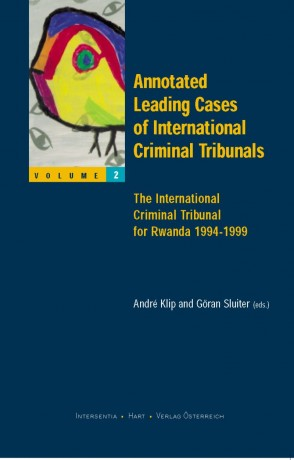
The establishment of the international criminal Tribunal for the Former Yugoslavia and the international criminal Tribunal for Rwanda raised many new legal issues, such as the competence of the Security Council of the United Nations to establish a criminal tribunal, the relationship between the Tribunals and national authorities and the protection of vulnerable witnesses without violating the rights of the defence at the same time. In dealing with these and other issues, one has to bear in mind that there was no useful precedent to guide the International Tribunals in its work. Therefore, it was and is a major challenge to the Tribunals to come up with creative solutions to legal problems in a manner that enables the Tribunal to function effectively and that fully respects the rights of accused. The Tribunals' case law provides some of these solutions. The series Annotated Leading Cases of International Criminal Tribunals is useful for students, legal practitioners, judges and prosecutors who are interested in the various legal aspects of the law of the ICTY and the ICTR.